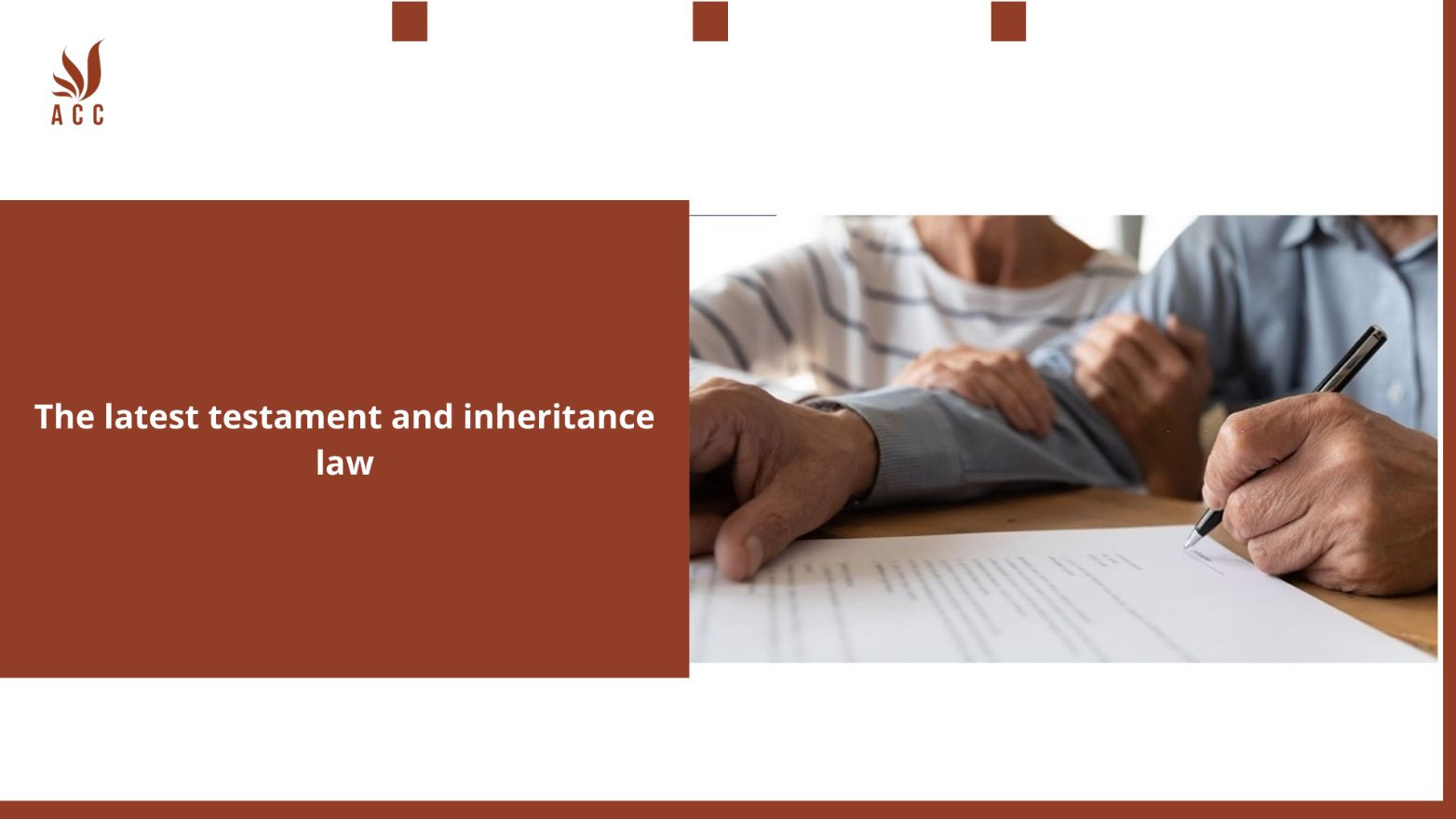Here are some key principles related to testament and inheritance laws in the U.S.:
1. Testamentary Capacity:
To create a valid will, the testator (the person making the will) must generally be of "sound mind." This means they must understand the nature of their assets, the identity of their beneficiaries, and the effect of the will they are creating.

2. Legal Age:
In most states, the legal age to create a will is 18 years or older. Some states allow minors to create a will under specific circumstances, such as being emancipated or in the military.
3. Witnesses:
Many states require that a will be witnessed by at least two disinterested parties who are not beneficiaries of the will. The witnesses must sign the will in the presence of the testator.
4. Executor:
The testator can appoint an executor in their will to carry out the instructions of the will. This person is responsible for administering the estate, paying debts, and distributing assets to beneficiaries.
5. Intestate Succession:
If a person dies without a valid will (intestate), state laws dictate how their assets will be distributed among heirs. Typically, spouses, children, and close relatives are first in line to inherit.
6. Probate:
Wills generally go through a legal process called probate after the testator's death. Probate involves validating the will, paying debts and taxes, and distributing assets to beneficiaries.
7. Inheritance Taxes:
Some states have inheritance taxes or estate taxes that apply to certain estates. Federal estate taxes may also apply to large estates. The rules and exemptions for these taxes can change, so it's essential to stay informed about the current tax laws.
8. Q&A
Q1. What is the latest testament and inheritance law?
- The specific details of the latest testament and inheritance laws can vary depending on the jurisdiction you are referring to. Testament and inheritance laws are typically governed by national or regional legislation and are subject to change over time. It is important to consult the relevant laws and regulations in your jurisdiction to understand the latest provisions and requirements regarding wills and inheritances.
Q2. How do I find information about the latest testament and inheritance laws in my jurisdiction?
- To find information about the latest testament and inheritance laws in your jurisdiction, you can start by researching the official government websites or legal resources specific to your country or region. These sources often provide access to the latest statutes, codes, and regulations related to wills and inheritances. Additionally, consulting with a qualified lawyer or legal professional who specializes in estate planning can also provide you with the most up-to-date and accurate information.
Q3. What are some common elements covered in testament and inheritance laws?
- Common elements covered in testament and inheritance laws include:
- Requirements for creating a valid will, such as age, mental capacity, and formalities like signing and witnessing.
- Rules for intestate succession, which determine how an individual's assets will be distributed if they die without a valid will.
- Provisions for disinheriting or excluding certain individuals from inheriting.
- Guidelines for the administration of estates, including the appointment and duties of executors or administrators.
- Considerations for specific types of assets, such as real estate, financial accounts, or digital assets.
- Provisions for guardianship of minor children or dependents.
- Tax implications and considerations related to inheritances and estate transfers.
Q4. Are there any recent changes or trends in testament and inheritance laws?
- Recent changes and trends in testament and inheritance laws can vary depending on the jurisdiction. However, some common trends include:
- Increasing recognition of digital assets in estate planning and inheritance laws.
- Expanding options for alternative methods of estate distribution, such as trusts.
- Updating laws to accommodate modern family structures, including blended families, same-sex marriages, and non-traditional relationships.
- Continued focus on protecting vulnerable individuals, such as minors, elderly individuals, and individuals with disabilities.
It is important to stay informed about legislative updates and consult legal professionals to ensure compliance with the latest laws and to effectively plan for your estate.
Nội dung bài viết:






Bình luận